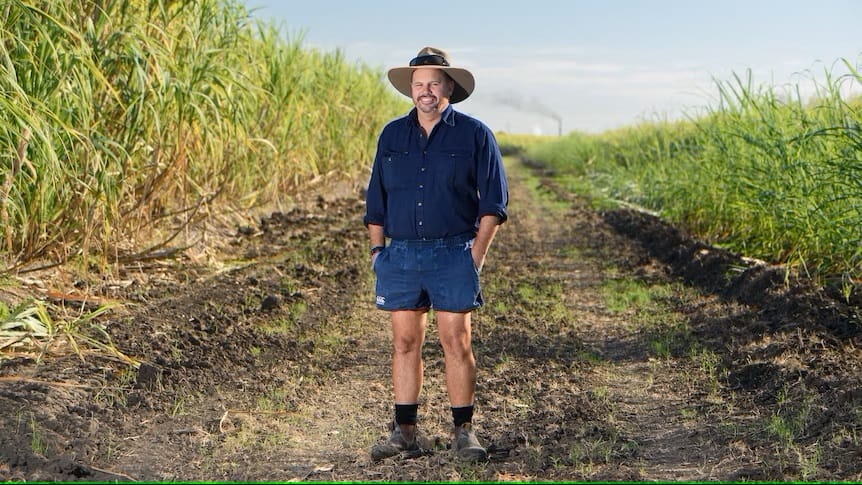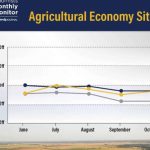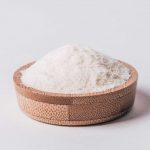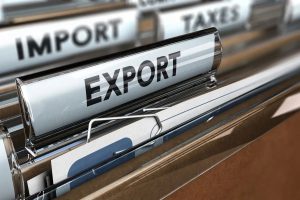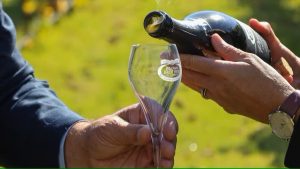
Owen Menkens has spent much of his life among the tall, green sugarcane plantations of North Queensland, farming a crop that is eventually added to almost every item of food.
He recalls with “excitement” the day he watched as tonnes of raw sugar — nearly $20 million worth — was poured into a bulk carrier destined for a refinery on the banks of London’s River Thames.
“It was the first time in my lifetime I’d seen sugar set sail for the UK,” said Mr Menkens, who exports most of his sugar to Asia.
“It created a fair bit of news over there as well.”
The shipment was the first under a free trade deal with the UK that opened the door for Australia to export 80,000 tonnes of raw sugar, tariff-free, to Britain in its first year, and 20,000 a year thereafter.
Across the Channel, bureaucrats in Brussels have scoffed at Australian demands for similar market access as part of a trade deal with the European Union — a massive, high-income bloc of 445 million people.
Reports suggest EU negotiators have offered Australia a quota of just 15,000 to 20,000 tonnes of raw sugar per year which, according to producers, is so low, it’s not commercially viable to ship.
Mr Menkens said it was frustrating because European refineries wanted Australian sugar and would pay a premium for it.
“Europe imports 2 million tonnes of raw sugar a year,” he said.
“There’s a market there, we just need them to open the door.”
The EU is an exciting new frontier for farmers, one of few major markets with whom Australia has no free trade deal.
But five years after talks began, getting the EU to open the door to Australian sugar, beef, sheep meat and dairy — tariff and quota-free — remains the biggest hurdle in negotiations between the two sides.
‘Endgame’ for deadlocked talks
Trade Minister Don Farrell walked out of the last round of negotiations in Brussels in July, but he’s holding out a glimmer of hope that he’ll finally be able to clinch a deal when he meets again with his EU counterpart, Valdis Dombrovskis, on the sidelines of the G7 trade ministers meeting in Osaka.
“It’s a difficult time in the negotiations,” he said.
“I wish I could give the Australian people and agriculture some good news that we are close to resolving the issue [but] I don’t believe we are.”
The meeting is being touted as the “endgame” for talks, because if Australia walks away again, the two sides will likely have to wait until after the European parliament elections next June to resume.
“I have made it very clear that Australia will not sign a deal for the sake of it, and I meant it,” Senator Farrell said.
Raising the stakes, in Osaka he’ll be joined by a delegation of Australian farming groups who are dead against the current offer on the table.
The National Farmers’ Federation fired a shot across the bow this week, publicly labelling the deal a “dud”, while other groups argued it did little to close a massive trade deficit that sees the EU “flood” Australia with agricultural products while accepting very little from Australia in return.
“The deal offers no gains for Aussie dairy, just costs and burdens,” an Australian Dairy Farmers spokesperson said.
“The EU floods the Australian market with 70,000 tonnes of subsidised EU dairy product, while Australia only exports less than 500 tonnes.”
Naming rights fight
For the dairy industry, this trade deal is about more than tariffs and quotas; it’s also about the right to continue selling products under their existing names.
As part of the deal, the EU is demanding Australia give up naming rights to hundreds of products including parmesan, mozzarella, feta and prosecco, which are considered by the Europeans to be geographical indications.
Dairy Australia has estimated the loss of these names would cost the industry about $95 million and would take years to rebrand and re-label and re-educate consumers.
Beyond the cost, Australian negotiators have argued that Australia, as a nation of immigrants, shares an emotional attachment to many of the products.
But once again, the EU isn’t budging.
Both sides agree a trade deal would help diversify away from China, which has used economic coercion against Australia since 2020.
In exchange for greater market access, an agreement could see the EU gain easier access to Australia’s vast resource of critical minerals, required for Europe’s green energy transition.
Australian negotiators are also mulling EU demands to scrap the contentious Luxury Car Tax (LCT), which has long been a bugbear of European manufacturers because no other imported luxury goods are subject to a similar levy.
The LCT applies a 33 per cent tax on every dollar above the threshold for new cars, which is $76,950 for most vehicles, and $89,332 for fuel-efficient models.
Scrapping the tax would see Australian consumers save thousands of dollars, but the federal government would be forced to forgo the $1 billion it raises.
Talks between Australia and the EU began in 2018, and as the trade minister prepares to resume negotiations, neither side is confident a deal will be reached, despite the now-or-never card being played.
